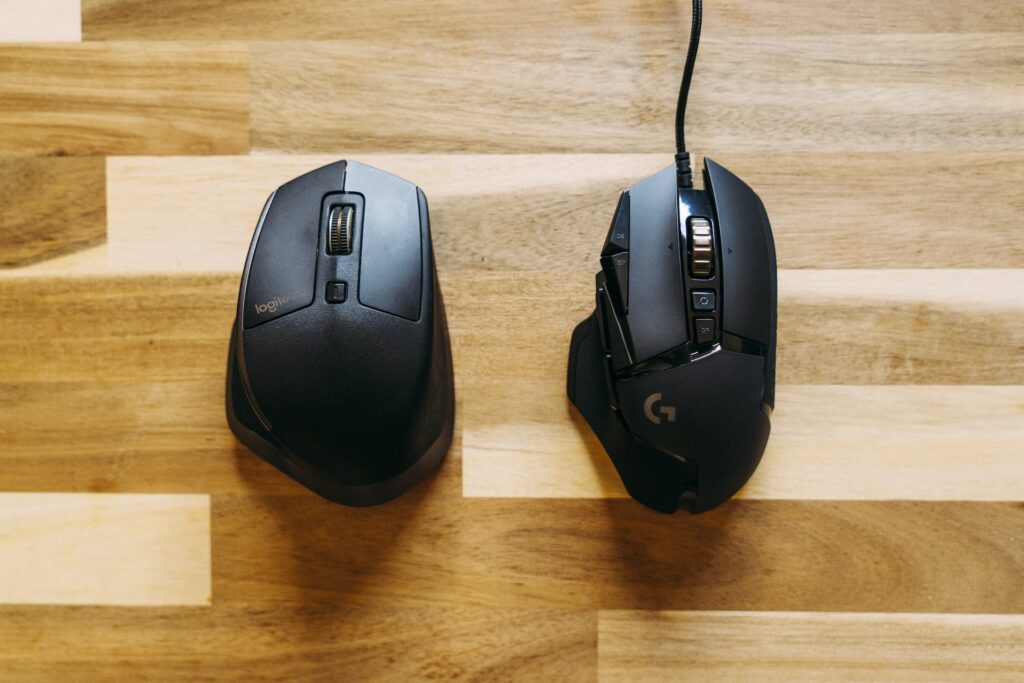Are you in the market for a new mouse but don’t know whether to go with a wired or wireless option? The plethora of available options can make it tough to identify the optimal solution for your requirements. In this post, we’ll cover the differences between wired and wireless mice and help you pick which one is the ideal choice for you.
Introduction
A computer mouse is a vital tool for navigating your computer, whether you’re using it for work, gaming, or leisure. With technological improvements, the choice between a wired and wireless mouse has grown more complex. There are pros and cons to each option, and it ultimately boils down to personal preference and intended use.

Wired Mouse
A mouse with a wired connection establishes a link to your computer using a USB or PS/2 connector. It is powered by your computer, so you don’t need to bother about replacing batteries or charging them. Here are some advantages and cons of using a wired mouse:
Advantages of a Wired Mouse
No batteries are necessary. Since a wired mouse is powered by your computer, you don’t need to bother about replacing batteries or charging it. This can save you money in the long run and ensure that your mouse is always ready to use.
Disadvantages of a Wired Mouse
- Limited mobility
The main disadvantage of a wired mouse is its limited mobility. The cable can get in the way and restrict your movement, making it difficult to use in certain situations. - Cable clutter
A wired mouse requires a cable, which can create clutter on your desk or workspace. This can be frustrating and make it difficult to keep your area organized.

Wired Mouse
A wireless mouse uses a radio frequency (RF) or Bluetooth connection to communicate with your computer. It is powered by batteries and does not require a cable. Here are some advantages and disadvantages of using a wireless mouse.
Advantages of a Wireless Mouse
No batteries are necessary. Since a wired mouse is powered by your computer, you don’t need to bother about replacing batteries or charging it. This can save you money in the long run and ensure that your mouse is always ready to use.
Consistent and stable connection
A wired mouse provides a continuous and stable connection to your computer, as there is no danger of interference or signal loss. This aspect bears great significance for individuals, such as gamers or those in need of precision motions.
Low latency
Wired mice offer minimal latency, meaning there is little to no delay between your motions and the cursor on your screen. This is important for gaming or other applications where precise motions are necessary.
Disadvantages of a wired mouse
Limited mobility
The biggest downside of a wired mouse is its limited mobility. The cord can get in the way and impede your movement, making it difficult to use in some scenarios. Cord clutter: A wired mouse requires a cord, which can create clutter on your desk or workspace. This can be frustrating and make it tough to keep your space organized.
Wired Mouse
A wireless mouse uses a radio frequency (RF) or Bluetooth connection to communicate with your computer. It is powered by batteries and does not require a cable. Here are some advantages and disadvantages of using a wireless mouse:
Advantages of a Wireless Mouse
A wireless mouse offers more mobility compared to a corded mouse. You can use it from a distance and move freely without worrying about the cord getting in the way.
No cable clutter
Since a wireless mouse does not require a cord, you don’t need to worry about cable clutter on your desk or workstation. This might help keep your environment orderly and tidy.

